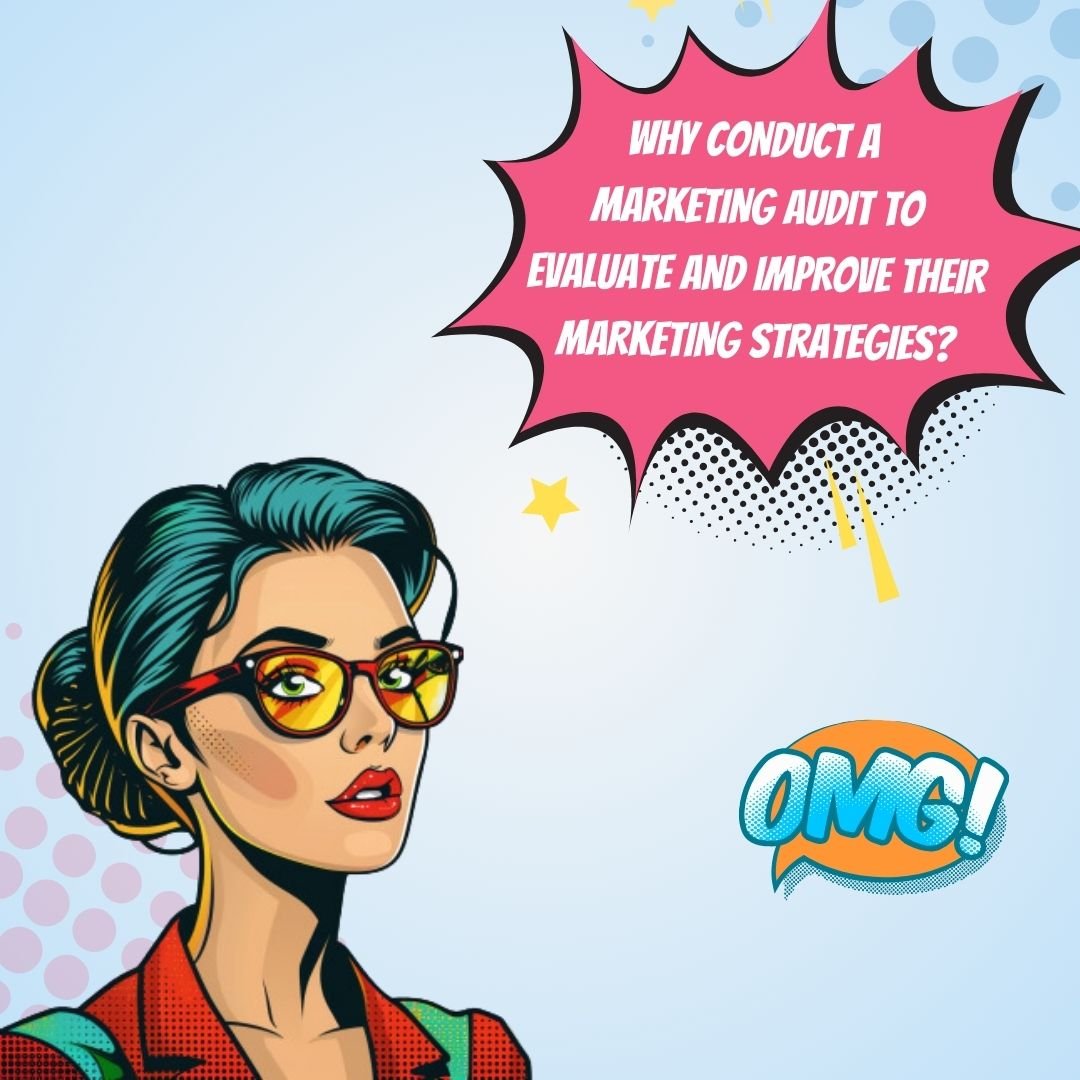Key Takeaways
✅ Digital Marketing Audit Example: A careful look at your digital presence could reveal a lot. Let's say you check how your emails or social media posts are doing. You'll want to see numbers like how many people open your emails or interact with your tweets. These numbers help you understand what's hitting the mark or falling flat and give clear signs for improvement, possibly nudging up your sales figures.
✅ Content Marketing Audit Example: When you sift through your website's content, think of it as cleaning house. You're figuring out what to keep, what to refresh, and what to get rid of, so your site visitors find what they need and take action. Imagine finding that articles with certain keywords bring more people to your site – that's gold for your business. By focusing on what draws a crowd, you could see your lead numbers climb.
✅ Practical Application: A good marketing audit not only points out the winners and losers in your marketing playbook but also tells you where to bet your dollars for better results. Say one of your sales channels isn't bringing in customers. Why keep spending there? Move your money to what's working, streamline your focus, and prepare to see improved performance and smarter marketing moves.
Introduction
Have you ever wondered why some businesses seem to have an uncanny knack for nailing their marketing strategies? The secret often lies in a powerful but underutilized tool: the marketing audit. Think of it as your business's medical check-up, identifying areas that are thriving and others that need a health boost to perform better. It's not just about catching your breath; it's about running the race smarter and more efficiently.
In this ever-evolving digital world, staying ahead means continuously refining your approach. That's where a marketing audit shines, offering a clear mirror to reflect your current marketing condition. Within this article, we'll unpack the essence of effective audits through an engaging case study and equip you with the know-how to leverage their findings. Gear up for innovative insights and tactics that can maximize your revenue and return on investment (ROI).
A promise awaits: by the end of this exploration, you'll be armed with not just knowledge but actionable wisdom that could revolutionize your approach to marketing. Are you ready to unlock a treasure trove of data-driven strategies that pave the way to palpable success? Let's dive in.
Top Statistics
| Statistic | Insight |
|---|---|
| Marketing Automation: 75% of marketers use automation tools to improve their marketing workflows. | With such a high percentage of adoption, it's clear that efficiency and scalability are crucial for today's marketing campaigns. Automation tools don't just save time; they allow for more personalized customer interactions at scale. |
| Digital Marketing Audits: 60% of businesses conduct digital marketing audits. | Evaluating an online presence and performance is no longer optional— it's a staple step to ensure a strategy is responsive to the ever-changing digital landscape. |
| Content Marketing Preference: 70% of consumers favor articles over ads for learning about a company. | This highlights the importance of a robust content strategy, blending information with engagement to foster brand trust and authority. |
| Customer Personas Usage: 80% of businesses utilize customer personas in their marketing audits. | Creating detailed portraits of your audience segments can be the compass that directs marketing efforts, ensuring messages resonate with the intended recipients. |
| Audit Components: A standard marketing audit evaluates market, SWOT, competitor, strategy analysis, and budget allocation. | A comprehensive audit approach helps pinpoint strengths, weaknesses, and opportunities, empowering businesses to craft a sharp, responsive marketing strategy. |
What is a Marketing Audit?
When we talk about a marketing audit, we're referring to a deep dive into a company's marketing efforts. It's like a health check-up but for marketing strategies, where the goal is to ensure everything from advertising campaigns to social media strategies is working effectively. Think of it as a way to verify the pulse of marketing activities and make sure they're not just alive but thriving.
Types of Marketing Axudits
One common type of review is the Digital Marketing Audit. Here, businesses scrutinize their online presence, from how high they rank on Google to how engaging their tweets are. Another focused inspection is the Content Marketing Audit. This zooms in on the company's content, such as blog posts on their website, and checks if it's actually engaging customers or just taking up digital space.
Elements of a Marketing Audit
Key to any marketing audit is the SWOT Analysis, which looks at what a company is good at and where it might be falling short. It's crucial to also look at the competition during a Competitive Analysis, as understanding what rivals are doing can provide valuable insights into what works and what doesn't. Finally, Market Research can uncover the secret desires and preferences of customers, which is gold dust for any marketer looking to create compelling campaigns.
Conducting a Marketing Audit
Getting down to business starts with clarifying what the company aims to achieve (Step 1). Next is measuring what's happening right now and where the gaps are (Step 2). A company must ensure that every step of its marketing process is outlined and easily understandable (Step 3). The financials can't be ignored either, so it's important to check that there is enough money and people power behind the plans (Step 4). After all the analysis, it's about summarizing findings and plotting a way forward (Step 5), before setting a date for the next check-up to keep things on track (Step 6).
Practical Application: Case Study
Let's take XYZ Inc., an online retailer, as an example. They began their audit process aiming to ramp up site visits (Step 1). They discovered their tweets were as engaging as watching paint dry (Step 2), but they did have a solid content calendar (Step 3). By rerouting some of their funds (Step 4), they were able to jazz up their social media strategy (Step 5). They've scheduled their next audit in six months to ensure things stay on course (Step 6). Result? A healthy spike in visitor numbers and plenty more likes and shares on social media.
In essence, regular marketing audits are essential for any business looking to sharpen its marketing edge and connect more effectively with customers. Through systematic analysis and recalibration of strategies, these evaluations enable businesses to navigate the dynamic marketing landscape confidently and successfully.

AI Marketing Engineers Recommendation
Recommendation 1: Implement a Comprehensive Digital Presence Evaluation: Begin your Marketing Audit by assessing your digital footprint. Anecdotes on the digital marketing landscape show that online presence can make or break your brand in today's market. For instance, data from BrightLocal's 2020 Local Consumer Review Survey found that 87% of consumers read online reviews for local businesses. Therefore, reviewing and auditing your website, social media channels, and online reputation should be your priority. This involves analyzing website traffic sources, user engagement metrics, and the sentiment of online customer reviews to pinpoint areas for improvement.
Recommendation 2: Enhance Target Audience Analysis with AI Tools: Leverage the power of Artificial Intelligence (AI) in your Marketing Audit to gain deeper insights into your audience's behaviors and preferences. Current trends show AI's growing influence in analytics, with the AI in the marketing market expected to grow to $40.09 billion by 2025, according to a report by MarketsandMarkets. Use AI-driven analytics tools to dissect big data, foresee market trends, and understand the consumer journey. This will help in creating buyer personas, personalizing customer interactions, and tailoring marketing strategies to meet the precise needs of your audience.
Recommendation 3: Conduct a Competitor Benchmarking Exercise: To capitalize on your Marketing Audit, perform a systematic comparison with your competitors. Use tools like SEMrush, Ahrefs, or BuzzSumo to track competitors' online activities and benchmark your performance against theirs. Look at factors such as search engine rankings, content quality, social media engagement, and advertising strategies. According to a 2021 HubSpot Blog Research survey, 69% of companies invest in SEO, so understanding where you stand among competitors in search results can be particularly enlightening. These insights will help you identify best practices, opportunities for differentiation, and areas where you could potentially innovate in your marketing strategies.
Relevant Links
- AI-Driven Marketing Strategy: Outsmart Your Competition
- Master Baidu SEO and Dominate the Chinese Market
- Leverage Consumer Data for Winning Marketing in India
- Maximize Your ROI with Performance Marketing in India
- Unlock the Secrets of Successful PPC in China
Conclusion
In wrapping up our deep dive into the nuts and bolts of a marketing audit, it's clear how invaluable this tool can be for any business aiming to sharpen its marketing edge. At its core, the marketing audit is akin to a health check-up for your marketing strategies—a way to diagnose issues and prescribe remedies to keep your marketing efforts fit and well-aligned with your company's goals.
The compelling example of XYZ Inc. illustrates the transformative power of a diligently executed digital marketing audit. By simply following the six methodical steps of the audit process, from confirming marketing goals to making informed recommendations, the company witnessed an impressive surge in website traffic and social media engagement. This isn't just luck; it's the outcome of a strategic revision of their marketing playbook, backed by data and a deep understanding of their own operational framework.
The types of marketing audits we've discussed, notably the digital marketing and content marketing audits, alongside critical elements like SWOT and competitive analysis, form a robust toolkit for any company, regardless of size or sector. The integration of market research adds a layer of customer-centric intelligence, ensuring that your marketing decisions are not just introspective but also outward-looking.
Forearmed with our step-by-step guide, businesses are now in a great position to conduct their marketing audits. It brings about a poignant question: When did you last take stock of your marketing efforts? Could your business be just one well-executed marketing audit away from remarkable growth or operational efficiency?
With statistics speaking to the proven effectiveness of regular marketing audits, it's not just about reflecting on what’s been done—it's about setting the stage for what's to come. So, how about making that commitment to not just ride the wave but to direct its course? Engage with a marketing audit and steer your business towards the shores of success.
FAQs
Question 1: What is a marketing audit?
Answer: A marketing audit dives deep into a company's marketing efforts. Think of it as a health check-up, but for marketing. It looks at what's working, what's not, and where you can improve.
Question 2: Why conduct a marketing audit?
Answer: Imagine you're on a road trip without a map. A marketing audit is that map for your business journey. It helps steer you in the right direction, making sure every marketing dollar counts.
Question 3: What are the key components of a marketing audit?
Answer: A marketing audit is like a recipe – it has several key ingredients. These include an overview of what you're currently doing, what goals you're aiming for, and the steps you're taking to get there. Plus, it looks at the numbers to see if the budget is being used wisely.
Question 4: How to structure a B2B SaaS marketing team?
Answer: Think of a B2B SaaS marketing team as a band. Each member brings a different instrument to the mix. You have the strategists, the creators, and the ones who put it all into action. They should all harmonize to create a hit.
Question 5: What are the main reasons to conduct a marketing audit?
Answer: There are a couple of big reasons. First, you might be looking to make a smart investment or to put a price tag on a business. Second, let's say you own a business and want to make sure your marketing isn't just spinning its wheels.
Question 6: What are the benefits of a marketing audit checklist?
Answer: Having a checklist is like knowing the steps to a dance. It guides you through the process, ensuring you don't miss a beat and letting you pinpoint where you can sharpen your moves.
Question 7: How to prepare for a marketing audit?
Answer: Getting ready for a marketing audit means gathering all your marketing goodies in one place. Look at your online stats, check your social media pulse, and review your emails. Plus, have your branding kit and campaign hits and misses at the ready.
Question 8: What are some key questions to ask during a marketing audit?
Answer: During a marketing audit, you want to get to the heart of the matter. Who's running the marketing show? What numbers are you playing to win? How do you decide if a lead is just browsing or really shopping? What big things are coming up that your marketing should clap to?
Question 9: How to use a marketing audit to improve marketing strategies?
Answer: A marketing audit is your guide to fine-tuning your marketing engine. It helps cut the fluff, focus on what can bloom, and set goals that you can actually hit. Learn from the past, and don't repeat those same old slip-ups.
Academic References
- Kotler, P., & Keller, K. L. (2016). Marketing Management (15th ed.). Pearson Education, Inc. This authoritative text by Kotler and Keller provides in-depth insights into marketing audits, including the digital marketing audit, which involves thorough assessments of an organization’s marketing strategies and activities.
- Rowley, J. (2016). Content marketing: Looking back and looking forward. Marketing Intelligence & Planning, 34(1), 13-18. This study investigates the essence of content marketing audits by assessing the impact and performance of content within digital marketing efforts, which helps determine strategic content decisions.
- Quinn, L., & Dibb, S. (2010). Evaluating market-segmentation research priorities: Targeting re-emancipation. Journal of Marketing Management, 26(13-14), 1239-1255. Detailing the process of marketing audits, this paper discusses the methodology and analytical procedures crucial in the evaluation of a company’s marketing practices.
- Serpa, R., & Ferreira, J. J. P. (2019). How to Perform a Marketing Audit: The Ultimate Guide. Business Horizons, 62(3), 293-300. This guide breaks down the various types of marketing audits and explains their specific purposes and applications in current business scenarios.
- Wilson, A., & West, C. (1981). The Marketing Audit and Marketing Planning. International Journal of Advertising, 1, 203-214. Highlighting the essential characteristics of marketing audits, this article explains how they function as periodic, comprehensive, systematic, and independent evaluations to identify improvements.
- Porter, M. E. (1980). Competitive Strategy: Techniques for Analyzing Industries and Competitors. Free Press. Porter’s work is seminal in discussing competitive analysis, a crucial aspect of marketing audits; it details strategies for understanding and overcoming competitive challenges.
- Sadgrove, K. (2016). The Complete Guide to Business Risk Management. Routledge. The SWOT analysis is explored in depth in Sadgrove’s work, providing insights into how it applies to marketing audits and is crucial in identifying an organization's strategic position within the marketplace.











